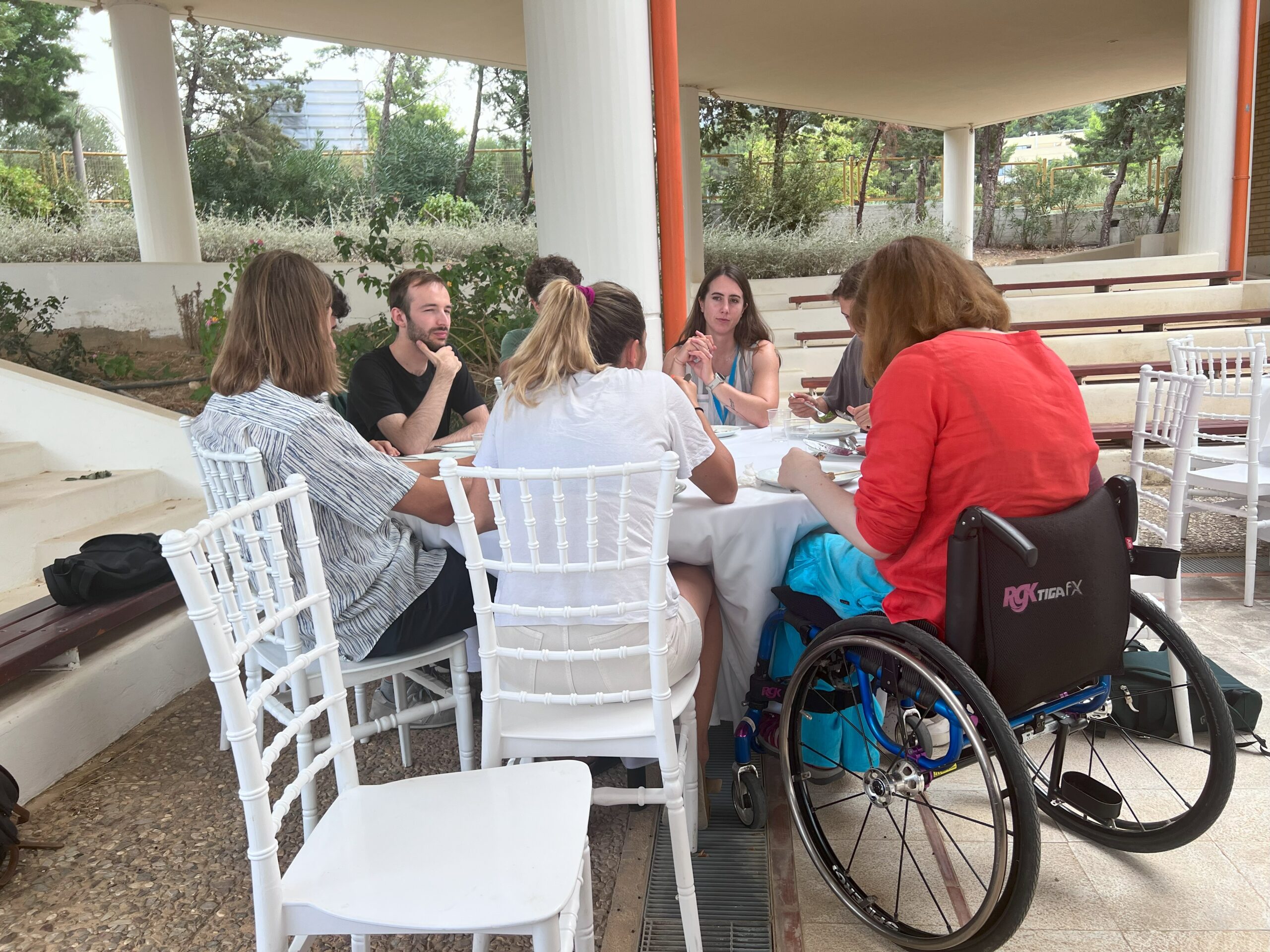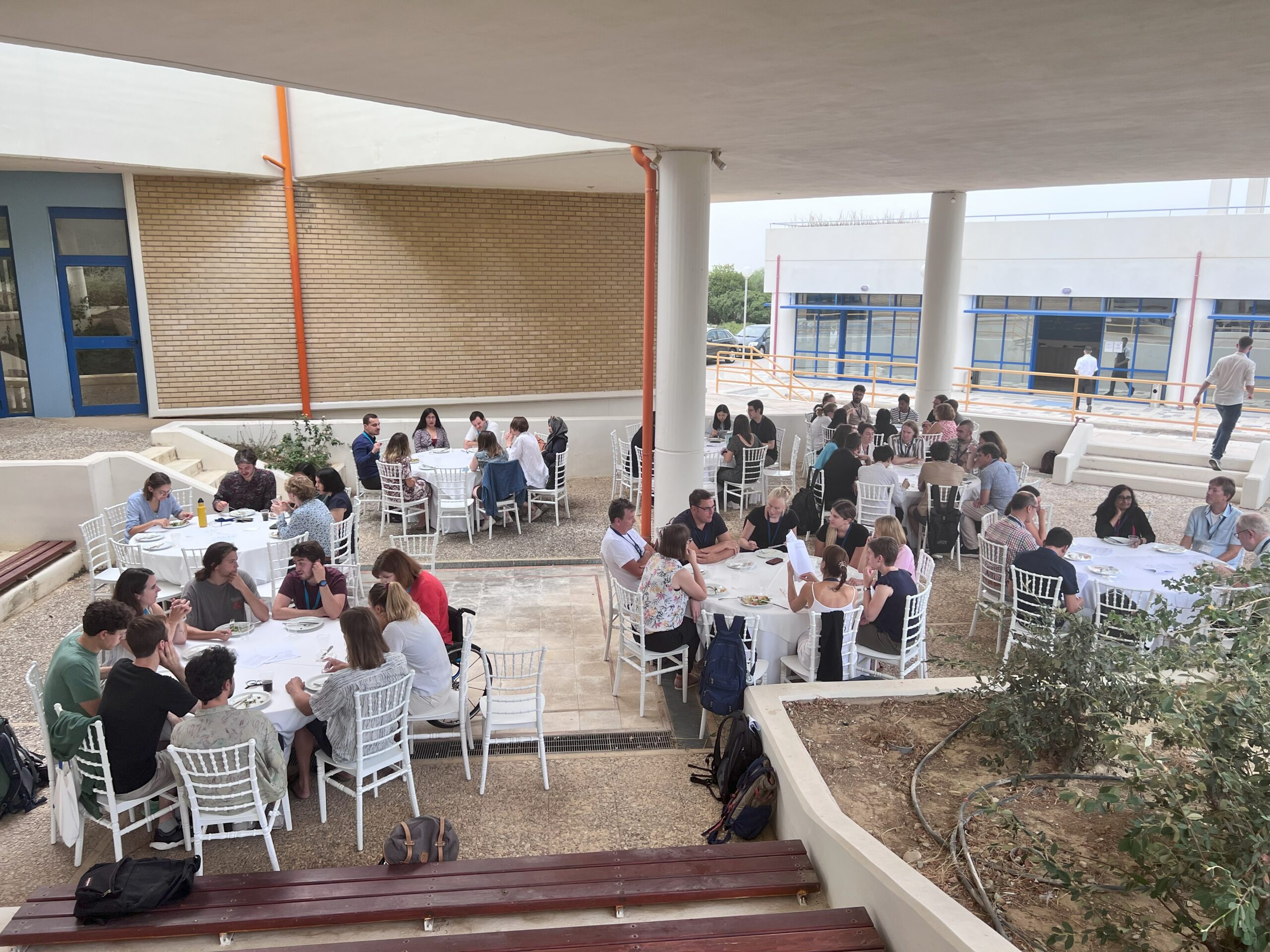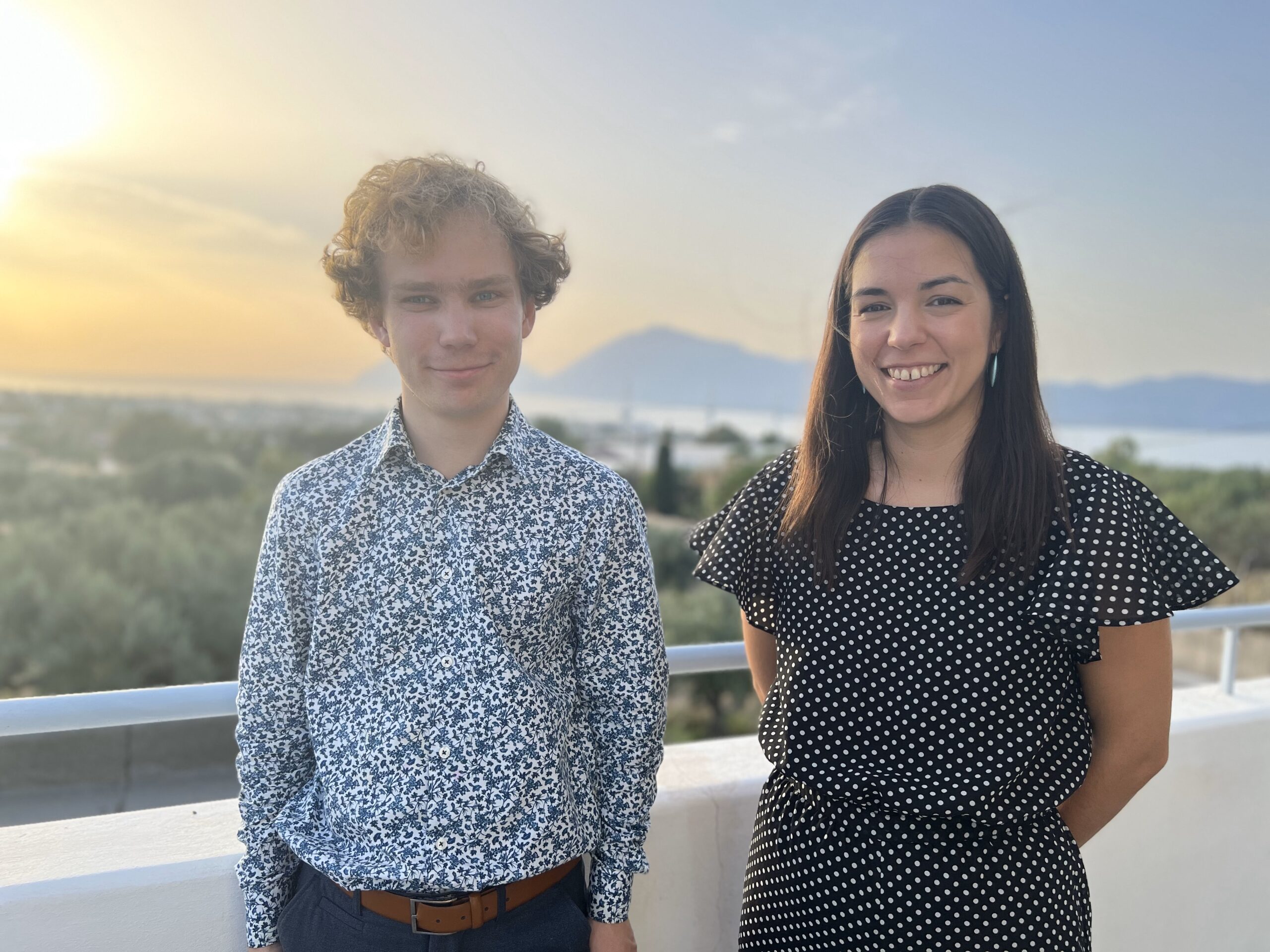Diversity and inclusion are crucial aspects of any scientific community, and fostering open conversations on these topics is essential for progress. In a world where science often thrives on specialized knowledge and technical jargon, creating a space for scientists from various backgrounds to discuss diversity-related issues can be a challenge. However, early-career scientists within FORCeS confronted this challenge headfirst and came up with an innovative solution that became known as the Diversity Lunch.
We had the opportunity to sit down with Ove Haugvaldstad, PhD student at the Norwegian Meteorological Institute in Oslo, Norway, who, together with Stella Manavi, PhD student at the Foundation for Research and Technology Hellas in Patras, Greece, was organizer of the Diversity Lunch during the Annual Meeting in Patras, Greece. In the discussion that followed, we got to hear more about the origins, themes, and impact of this unique initiative.
“The Diversity Lunch was born out of the need for early-career scientists to take ownership of diversity-related discussions within their community,” explains Haugvaldstad. “Ana Cordeiro, Ilona Riipinen and Annica Ekman were actually the driving forces behind the idea. They envisioned a platform where young scientists could engage in candid conversations about diversity and inclusion. Initially, the responsibility was delegated to early career representatives of various courses, with the aim of ensuring a broad and inclusive perspective,” he adds.
 The concept evolved organically from its predecessor, the Women’s Lunches, where female project members gathered to discuss issues related to gender. However, to expand beyond gender diversity and encompassing diversity in a broader sense, the Diversity Lunch was initiated. The first Diversity Lunch took place in during the Annual Meeting in Oslo in 2022 and aimed to initiate a conversation around diversity. Participants engaged in brainstorming sessions and created mind maps to explore the obstacles and facilitators of diversity within their field. According to Haugvaldstad, the organizers wanted to provide a safe and comfortable environment for these discussions, recognizing that diversity-related topics are not always easy to address.
The concept evolved organically from its predecessor, the Women’s Lunches, where female project members gathered to discuss issues related to gender. However, to expand beyond gender diversity and encompassing diversity in a broader sense, the Diversity Lunch was initiated. The first Diversity Lunch took place in during the Annual Meeting in Oslo in 2022 and aimed to initiate a conversation around diversity. Participants engaged in brainstorming sessions and created mind maps to explore the obstacles and facilitators of diversity within their field. According to Haugvaldstad, the organizers wanted to provide a safe and comfortable environment for these discussions, recognizing that diversity-related topics are not always easy to address.
Each year, the Diversity Lunch revolves around a specific theme. The theme for 2023 was “Changes in Gender Diversity Throughout the Decades.” Haugvaldstad explains that the inspiration for this year’s theme came from an article in Carbon Brief discussing how the gender balance in the Intergovernmental Panel on Climate Change (IPCC) reports had evolved over time. This topic was particularly relevant, given the wide range of perspectives within the project, from senior Principal Investigators to early-career scientists.
“One key aspect of the Diversity Lunch is their informal and open format. Participants sit at tables and engage in conversations that unfold naturally. The aim is not to dictate specific discussion points but to create an atmosphere where people from diverse backgrounds can share their thoughts and experiences. Ground rules are established to ensure that everyone feels safe and comfortable contributing,”details Haugvaldstad.
While the primary goal is to facilitate open conversations, the organizers also consider the broader impact of these discussions. The Diversity Lunch is not about reaching specific conclusions or creating mandatory guidelines. Instead, as Haugvaldstad aptly points out, they serve as a platform for individuals to reflect on diversity-related topics and engage in discussions they might not have in their daily work settings.
This year’s Diversity Lunch seemed particularly lively, possibly due to the hot-button topic of gender diversity in climate research. At first, the discussions may have been slow to start, but once they gained momentum, participants delved into a philosophical and political exploration of the issue.
“The impact of the Diversity Lunches varies from year to year, depending on the composition of the participants. Mixing groups with different levels of seniority has been found to be particularly effective in encouraging meaningful conversations. We believe that diverse perspectives enhance the quality of these discussions,” concludes Haugvaldstad.
In a nutshell, the Diversity Lunch initiative provides a valuable platform for early-career scientists to discuss diversity and inclusion topics openly. It encourages participants to reflect on these issues and engage in conversations that can lead to a more inclusive scientific community.
Ove Haugvaldstad concludes: “The hope is that the Diversity Lunch will serve as a shining example of how open dialogue can drive positive change within the scientific community.”
All photos taken by Stella Papadopoulou.


